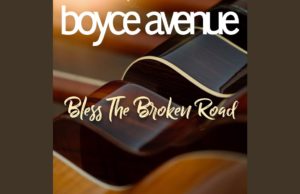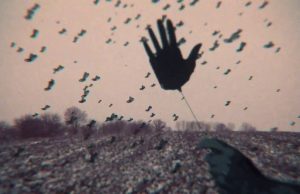 I recently picked up a limited copy of Elton John‘s debut-album-that-wasn’t. Regimental Sgt. Zippo was recorded in 1967 and 1968 and was intended to be Elton’s first studio release. But by the time it was ready for pressing, the predominant style of the songs was a little passé. A decision was made to shelve the album and do another using another batch of the many, many songs John and Bernie Taupin were eagerly cranking out at a ridiculous rate. (If you include Zippo, the pair wrote enough for a dozen studio albums over the course of the next seven years.)
I recently picked up a limited copy of Elton John‘s debut-album-that-wasn’t. Regimental Sgt. Zippo was recorded in 1967 and 1968 and was intended to be Elton’s first studio release. But by the time it was ready for pressing, the predominant style of the songs was a little passé. A decision was made to shelve the album and do another using another batch of the many, many songs John and Bernie Taupin were eagerly cranking out at a ridiculous rate. (If you include Zippo, the pair wrote enough for a dozen studio albums over the course of the next seven years.)
Zippo wasn’t released until June of last year for Record Store Day. Elton is a major vinyl collector and has taken part in such events before, like when he put out a double-album version of the excellent 17-11-70 live album, now containing the entire show. So this Zippo purchase got me thinking about what other albums are still out there, perhaps on archived tape reels in labelled boxes on studio shelves, waiting for the day when their historical significance outweighs their dated cringiness.
Similar to Elton, in a way, The The’s first album isn’t really their first album. The The recorded The Pornography Of Despair for release in 1982, but it was shelved in favour of Soul Mining. There’s even an earlier work called Spirits dating back to 1979.
Smile by The Beach Boys is a rather famous one, though I suppose it’s more “unfinished” than shelved. At any rate, the album was intended as their 12th studio album, just as Brian Wilson was at his creative peak. (They’d just put out the Good Vibrations single.) The backing tracks to the new songs were recorded, but almost no vocals were done. A few tracks from the album made their way onto the watered-down Smiley Smile in 1967 — like Heroes & Villains and Vegetables. About 10 years later, Wilson created demos for a big-band album for The Beach Boys, which the band refused. In 2011, Wilson released The Smile Sessions, which included an approximation of the finished album, using the original recordings.
In similar fashion, last year — in time for Xmas — we got a chance to buy the original 1969 Beatles Get Back concept album as produced by Glyn Johns. A much different album than the Let It Be album Phil Spector helped complete in 1970. Different even from Let It Be… Naked in the 1990s.
We all know there’s a plethora of unreleased Prince music, and some debate as to whether or not it should come out, which would clearly have been against the artist’s wishes. Still, it’s hard not to be curious about the shelved album Dream Factory, which would have appeared between Parade and Sign O’ The Times.
As a huge Pink Floyd fan, I’m grateful the band never managed to complete the awful Household Objects album idea. They certainly tried — using wine glasses and other non-musical instruments. Some of the stuff they recorded, done after Dark Side Of The Moon, was issued. But they only managed two songs — the elastic-band-as-a-bass number The Hard Way, which was released in 2011.
https://www.youtube.com/watch?v=qjZLV0ltFOw
The other song was Wine Glasses, elements of which make up the beginning of Shine On You Crazy Diamond. Bet you thought that was a synthesizer. It’s not.
In 1970, Jeff Beck recorded an album’s worth of material at the legendary Motown studio Hitsville USA. The material was hardly Motown due to the rock band involved, so those tracks were deemed all wrong and nothing more was done with them. In fact, apart from a cassette tape Beck made of the initial mixes, it’s not known if those original tapes survive.
The other Beck — Beck Hansen — has no fewer than three unreleased albums, including one with Jon Spencer, an electronic album and one of Hank Williams covers.
One shelved album I’ve always wanted a bootleg of is a copy of Wicked Lester — the pre-KISS band with Paul Stanley and Gene Simmons. Three tracks from the album were released on a KISS box set a few years ago, including the original versions of She and Love Her All I Can. When KISS became “the hottest band in the world,” CBS decided they should release the album they refused to put out in 1972. So in 1976 the band and Casablanca records boss Neil Bogart paid $137,000 for the master tapes so they’d never get out and make KISS Army members think any less of their heroes.
Just as KISS cherry-picked two songs off that Wicked Lester album to record, The Who took apart their shelved Lifehouse concept album and used its tracks on various later releases — Who’s Next, Odds & Sods, Hooligans, Who’s Missing, Who Are You and Scoop.
Crosby, Stills, Nash & Young tried three times from 1973 to 1975 to complete a studio album called Human Highway. They were too strung out and fighty to manage it.
Neil Young, in his own right, has mountains of unreleased projects — for example, 1977’s Chrome Dreams. Dr. Dre’s unreleased third album Detox was officially shelved in 2015; he released Compton instead.
Apart from David Bowie, Morphine and King Crimson, I’ve never been a lover of saxophone in rock. It’s why I’m not a huge Bruce Springsteen fan. Nebraska is my favourite albumof his, because it’s saxless home demos. I have little interest in hearing what’s referred to as Electric Nebraska — a re-recording of the tracks with the full E-Street Band. Hard pass.
• • •
Area Resident is an Ottawa-based journalist, recording artist, music collector and re-seller. Hear (and buy) his music on Bandcamp, email him HERE, follow him on Instagram and check him out on Discogs.










































